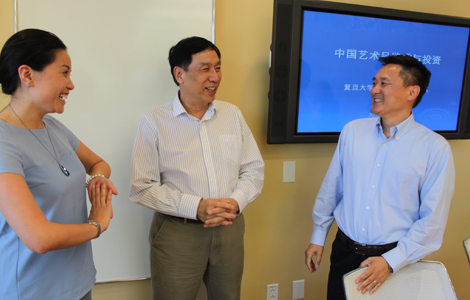Definitely not the best of times
Updated: 2013-08-05 07:03
By Op Rana (China Daily)
|
||||||||
It was the best of times, it was the worst of times, wrote Charles Dickens about the cities of London and Paris, more than a century and half ago. And yet it describes the world we live in today.
It is indeed the best of times for some - the rich - and the worst of times for everyone else, especially the poor. This is the age of wisdom, thanks to the all-round advancement we've made - from science and technology to economics and sociology - and yet it is also the age of foolishness, as is evident in the way we use our vast treasure of knowledge. There is every reason for us to believe in the future and there is every reason for us to live in suspended disbelief given the way the self-appointed masters of our destiny are treating the world. There is light, and only light, for a "chosen" few and there is nothing but darkness for the rest. And there is hope and heaven only for those "chosen" few. The rest have nothing but despair and .
The "masters of wisdom", the economists, never had it so good. Of course, they have been deciding the fate of trade and business since the days of Adam Smith. And of course, John Maynard Keynes had his decades of glory following the Great Depression, although he had to contend with the battering ram of Friedrich von Hayek. Well, Hayek and his able disciple, Milton Friedman, "patiently protected a pure version of capitalism, untarnished by Keynesian attempts to pool collective wealth to build more just societies" during those dark days of laissez faire, as Naomi Klein says in The Shock Doctrine.
Friedman unleashed this "pure version of capitalism" first in Latin America and later in Eastern Europe to devastating effect. Latin American countries, from Argentina and Brazil to Chile and Peru, became economic skeletons of themselves after the Friedman onslaught. Poland was robbed of its resources, so was Russia (look at the number of oligarchs that Russia threw up in just a few years). African countries didn't escape the fury of the Friedman assault either.
The same policies have now been recommended to revive the declining economies of the European Union, which is to say pretty much all of them except Germany. The results have not been encouraging, though.
While the EU ship is still in troubled waters, the United States' economy is believed to have weathered the economic tornado. But in reality, it doesn't seem anywhere near regaining its economic (and thus military) might. Why else has the US withdrawn its combat troops from Iraq and is on way to doing the same in Afghanistan, leaving the two countries battered and bleeding?
More importantly, why haven't the "world's leading economists" - the successors of Friedman, the prophets of plenty - helped their homeland to continue to be the "pastures of plenty"?
There is a lesson in all this for the emerging economies, including China and India (especially India, which is so eager to swallow the Western economic bait, hook, line and sinker). Giving free reign to laissez faire, creating an undue favorable environment for multinationals and lifting government control over the economy can only spell doom.
There is something else, equally, if not more important: the environment. The emerging economies, particularly China, have registered mind-boggling rates of growth, but growth has come at a high cost, the cost of the environment. Take India for example. A study (surprisingly) by the World Bank says that damage from environmental degradation in India amounts to more than $61 billion a year, or 5.7 percent of GDP, which shaves off almost the entire 6 percent per capita growth and 75 percent of the GDP increase between 2000 and 2011.
But with the US-led West caring less about the environment and hell-bent on exploiting the "opportunities" offered by receding ice cover in the Arctic and the so-called shale gas revolution in the US and Canada, the environment can only suffer more damage.
So if the emerging economies follow Western economist' advice, the environment, and with it the whole world, can jolly well go to you've guessed it!
The author is a senior editor with China Daily. Email: oprana@chinadaily.com.cn
(China Daily USA 08/05/2013 page11)

 British couple caring for special children
British couple caring for special children
 Fly for adventure at US air show
Fly for adventure at US air show
 Kobe Byrant meets fans in Shenzhen
Kobe Byrant meets fans in Shenzhen
 New Zealand milk stokes fears
New Zealand milk stokes fears
 Yemen enhances security over embassies
Yemen enhances security over embassies
 Chinese heavy ground combat vehicles join drill
Chinese heavy ground combat vehicles join drill
 Police find kidnapped baby alive in Henan
Police find kidnapped baby alive in Henan
 Privacy 'needed' for young offenders
Privacy 'needed' for young offenders
Most Viewed
Editor's Picks

|

|

|

|

|

|
Today's Top News
Pessimists ignoring China's strengths may lose out
Overseas investors welcome to bid in Beijing
US extends closure of embassies
New Zealand milk stokes fears
Riding the clean energy boom today
Magnetic attraction for EU SMEs
Mugabe wins Zimbabwe presidential election
EU solar deal hailed as blueprint
US Weekly

|

|





